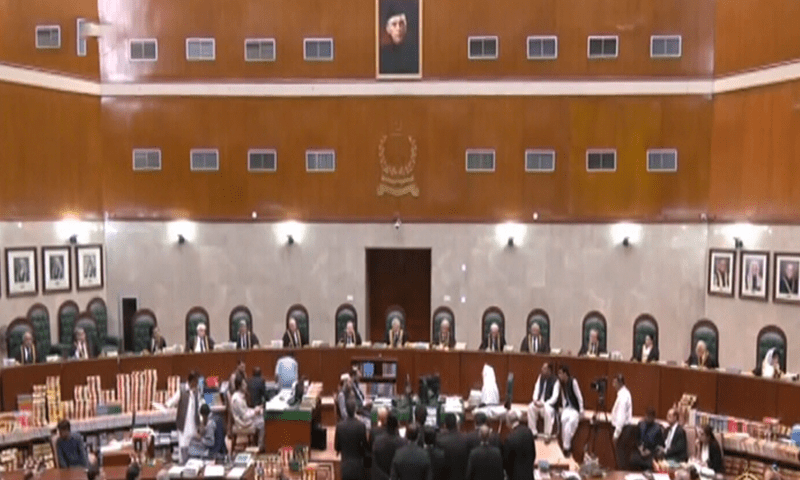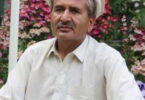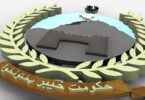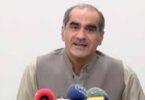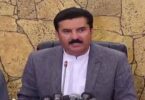F.P. Report
ISLAMABAD: As the full court resumed hearing a set of petitions challenging the Supreme Court (Practice and Procedure) Act 2023 on Tuesday with the proceedings going live on TV channels, the Chief Justice of Pakistan hinted at concluding the case on Monday.
However, the court heard arguments by parties opposing the law, including the PTI, and then adjourned the hearing till Monday (Oct 9). “That shall be the last day of the hearing,” Justice Isa said. The 14-judge SC bench led by Chief Justice Qazi Faez Isa is hearing the case and the court has arranged live-streaming of the proceedings on Pakistan Television (PTV). The previous hearing of the case was also broadcast live. During the court hearing today, Chief Justice Isa remarked that some people think that the Supreme Court and Parliament have come face to face with this law. He said he would not indulge in the war of words.
CJP Isa said that the law affected the chief justice and the two senior most judges of the Supreme Court, adding that the law would also apply to future chief justices and senior judges of the apex court. He said that he was sharing his powers with the senior judges. “Is it correct or not? At first, I thought that I should not sit in the bench, then decided that all the judges must hear this case.” The top judge remarked that he held a meeting with the representatives of the Pakistan Bar Council and Supreme Court Bar Association. The lawyers complained that they are not being heard, the Chief Justice said adding that when the lawyers are talking, let them finish their talk.
“The court should not be made a place for political debate. Supreme Court (Practice and Procedure) Act has now become law,” CJP Isa said observing that we should not go into this debate whether Parliament could have enacted legislation or not. The top judge asked the lawyers to inform the court whether the practice and procedure law was in conflict with the constitution or not. He inquired if the independence of the judiciary was only for itself and that it had to defend itself at all costs. He wondered if the independence of the court was not for the people. The Chief Justice said that if any question is asked from the bench, please note it.
CJP Isa remarked that the judiciary is not a subordinate department of the government. He again asked how this legislation could affect the independence of the judiciary. He remarked that the more we delve into the intricacies of the case, the more it would consume our time. “This case will not be heard anymore after today,” the top judge said. Justice Athar Minallah remarked that in his opinion, the purpose of the act is to provide access to justice. “The right to appeal is given in this law. My question is how access to justice is against the constitution,” he questioned.
Justice Ijazul Ahsan remarked that Parliament should have adopted a complete procedure before enacting the legislation, which was not done. Justice Minallah interjected saying giving the right to access to justice is the basis of the constitution. “is Parliament not empowered to enact legislation for the betterment of the people,” the judge asked. Justice Ali Mazhar remarked what is the use of the constitutional provision now when the law has already been made. Justice Ijazul Ahsan asked why can’t the Parliament legislate a law to form a bench itself?
Justice Munib Akhtar inquired if the Parliament reserves the power to form a bench, why can’t this legislation be enacted. After this, the Supreme Court announced a short break in the proceedings. When the court started proceedings after the break, the petitioner’s lawyer Hassan Irfan took the rostrum. He told the court that that the Constitution made the use of Article 184 (3) mandatory on the Supreme Court. At which, the Chief Justice inquired if he was saying that the not only Chief Justice has the power of Article 184-3, but the entire Supreme Court could exercise it. Irfan said that the powers were given to the apex court which then drafted the SC rules. “The SC then delegated their own power as a whole to the chief justice,” he said.
Referring to Article 50, said that it highlighted that it concerned the Parliament. He said that the bill was sent to the president for his approval, who then raised an objection. The lawyer said that this indicated a “dispute” within Parliament over the passage of the bill. Justice Ijazul Ashan said Article 191 empowers the Supreme Court to make its own rules of procedure. He further said the apex court itself could divide its powers into one or as many judges. He remarked that the powers of the Supreme Court are sacred.
Justice Minallah inquired if the parliament did not have the powers to bring transparency in the internal affairs of the Supreme Court. Lawyer said that the parliament has actually amended the constitution under the guise of legislation, Article 184 is silent on which particular right will be affected, then notice can be given. Justice Ali Mazhar remarked that he (the lawyer) is talking about the public interest which includes the fundamental rights written in the first part of the constitution. Chief Justice Isa remarked that he knows only the language of reality and not of assumptions. “Should we start with Maulvi Tamizuddin or Nusrat Bhutto, it can be observed that you can play with the constitution as you like. But we will not let anyone play with Pakistan.
We should give respect to Parliament. This court has provided legal channels for martial law. We must understand where our judiciary stands in the world ranking. A single authority, no matter if it’s a dictator or someone else, has destroyed the country. Forget about the privileges of the chief justice, we should keep in mind the benefits of people, the Chief Justice observed.
Chief Justice Isa went on to say that the Supreme Court confirmed several martial laws. “You are saying we should stick to the same line, you want to open the door to the next martial law.” Justice Minallah asked if there are any laws which are above the rules of Parliament in the world. Justice Mandokhel remarked that the Supreme Court Rules under Article 191 could not be unconstitutional.
The Chief Justice observed that Article 184-3 authority of the Supreme Court is extraordinary and Article 184-3 authority does not exist anywhere in the world. “If extraordinary authority can be given to the Supreme Court, can it not be returned? Parliament has given powers to the Supreme Court before. Now the rules are changing, so what is the problem? Will it be better if more brains think together instead of one brain of the chief justice,” the top judge remarked asking the lawyer to explain how the SC practice law is diminishing the rights of the chief justice. CJP Isa said that he has not sworn to protect the decisions of the Supreme Court. Rather he has sworn to protect the Constitution. Justice Ijazul Ahsan wondered if such a legislation had never been done before, why it was done now. He remarked that the right of appeal is necessary but it should be given through proper legislation.
After that, the court also announced a 30-minute break. When the hearing resumed after a 30-minute break, the arguments of Tehreek-e-Insaf’s lawyer Uzair Bhandari were continuing. Justice Athar Minallah asked PTI’s counsel that if Parliament enacts a data protection law that is inconsistent with the Supreme Court Rules, would the law prevail or the rules? Bhandari said that in such a case the rules will prevail. Then Justice Minallah inquired whether the law made by the Parliament will prevail or the rules. Lawyer Bhandari said that in his view the rules would be given importance. Justice Mohammad Ali Mazhar said that you are saying that the rules are binding, not the law. Lawyer Bhandari said that the rules were made under the constitution.
The Chief Justice remarked that right of appeal is not given in Article 204 whereas the Parliament has given right of appeal under Ordinance 204, first explain the point that how that right of appeal is right and wrong. The CJP said that the Supreme Court disqualified the prime minister in 184/3, where is it written in Article 204 that the right of appeal would be available? Lawyer Bhandari argued that where was it written in Article 184/3 that it would be applied under the law? Justice Munib Akhtar remarked that no law could be made apart from the Constitution. Justice Mansoor Ali Shah remarked that many laws, including the Competition Commission Law, are not included in the Constitution, so what will happen to them? Lawyer Bhandari said that if special tribunals have been formed, an appeal can be filed against them.
Chief Justice Isa asked whether it is written in the constitution. Justice Ijazul Ahsan remarked that the right to legislate on certain subjects has been given in the constitution, the power to legislate has not been given anywhere in Article 191. The Chief Justice said that if this is the case, the words in Article 191 about making rules subject to law would become ineffective. Justice Mansoor Ali Shah remarked that if your arguments are accepted, the right of appeal in the Competition Commission Act is also unconstitutional. Lawyer Bhandari said that he would not give opinion on a law which is not under discussion in the court. The Chief Justice inquired that what is the problem of Tehreek-i-Insaf with the right to appeal in Article 184/3? Why did PTI not raise its position in Parliament, he asked. Lawyer Bhandari said that he will not defend any political decision, to which the Chief Justice remarked that if you are a lawyer of a political party, you have to answer. The PTI lawyer argued that resigning from the assembly was a political decision, he is not responsible for every move of Tehreek-i-Insaaf.
Justice Ijazul Ahsan remarked that all SC decisions could not be correct, if right to appeal is granted in every case, then every person will enter his appeal. The chief justice remarked right now, there is no right to appeal. How many judges will hear the appeal, it’s a matter that will arise later, he added. The CJP went on to say if the full court hears a case then who will hear the appeal? The simple answer is that, if the full court makes a wrong decision, then the matter ends. He observed if the law is invalidated, then the right of appeal will end. He said the right to appeal is different and to learn from one’s mistakes is a different thing.
The Chief Justice said that Islam and democracy do not allow to entrust all powers in the hands of just one person. At the last hearing, the full court had asked the parties concerned to submit written replies on a set of nine challenges to the Supreme Court (Practice and Procedure) Act. The federal government had submitted a response to the court’s questions in the case. The full court bench of the Supreme Court has so far conducted five hearings of the case with an eight-member larger bench.
The erstwhile PDM government regulated the powers of the Chief Justice of Pakistan through an act, the authority to take suo motu notices, constitute benches, and assign cases was given to a committee of three senior judges. The eight-member larger bench led by then Chief Justice Umar Ata Bandial had stayed the implementation of the law during the first hearing of the case on April 13.

